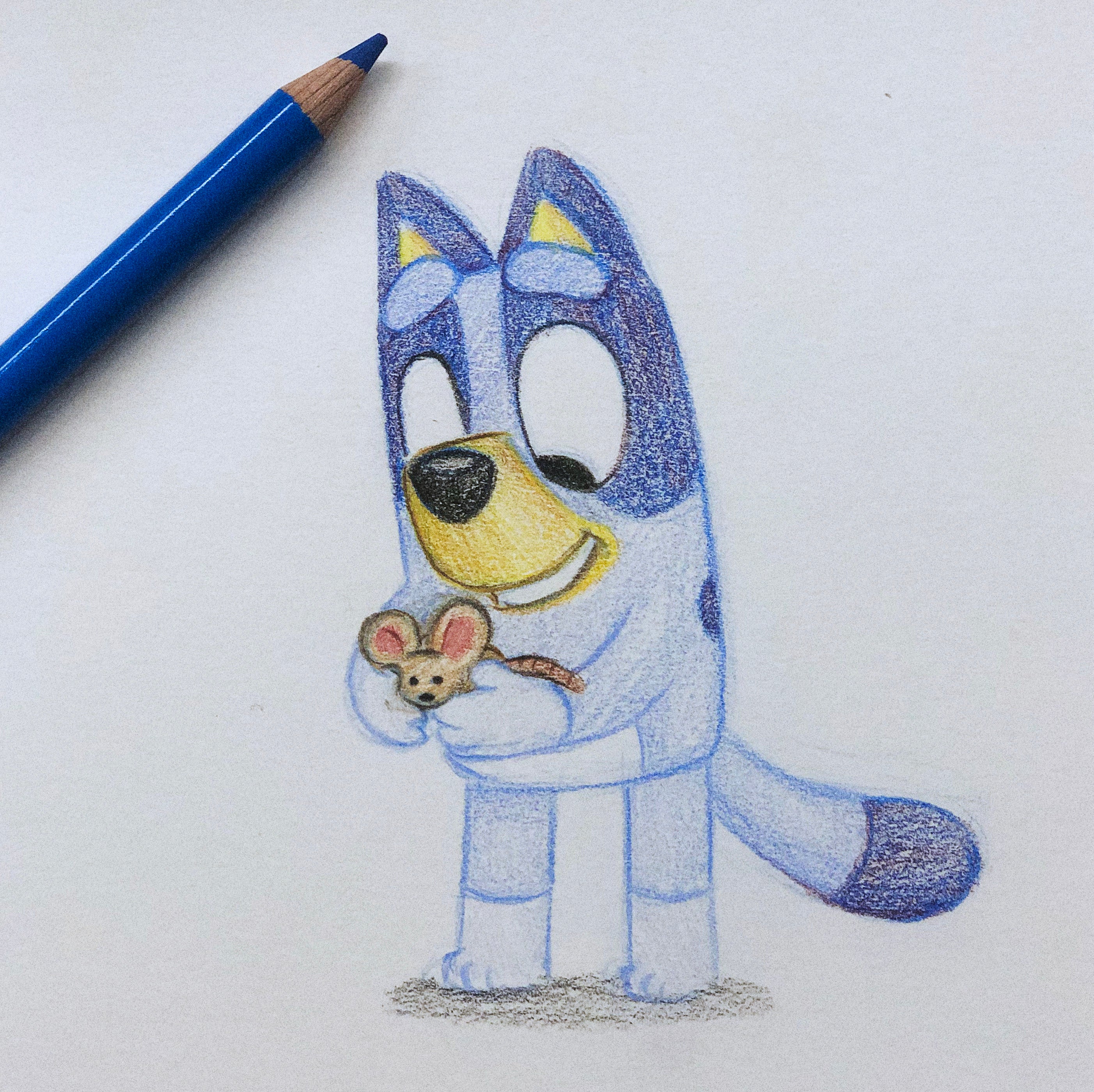‘Dunny’ and ‘Brekky’: How Bluey is changing the way American children speak
American parents are reporting that some Bluey-obsessed children have begun speaking with Aussie accents and using phrases from Down Under, Sheila Flynn writes

Do you know what a “dunny” is? What about “brekky, mate?”
If you’re a North American parent, the chances are at least two of those words were foreign to you a few years ago but are now essential to the daily family lexicon.
And it’s all down to a cartoon dog.
The Australian animated show Bluey burst onto Disney platforms in 2019 and became an instant hit with adults and children alike across North America.
Now amused US parents are reporting that their children are employing Aussie phrases in everyday conversation – often with an Australian inflection, as well.
“A few terms have been picked up by my daughter; he refers to breakfast as ‘brekky,” Massachusetts real estate agent Jason Manganello told Australian breakfast TV. “I’ve heard from other parents their kids are shifting in and out of Australian accents.”
Most children globally are accustomed to foreign programming with so much content seeping in from the US - but the phenomenon of embracing foreign programming is more recent the other way around in North America.
“In many cultures around the world, this kind of exposure to two or more languages or dialects is the norm rather than the exception, and children grow up comprehending and producing both codes quite naturally,” Bhuvana Narasimhan, director of the Language, Development and Cognition Lab at University of Colorado Boulder, tells The Independent.
Now that’s extending to young viewers on the other side of the globe – and Toronto speech pathologist Melissa James has heard linguistic effects on her own daughter, now five.
“I noticed that my daughter, who watched a lot of Peppa Pig, she started saying different words that are common in UK English that are on the television show,” Ms James tells The Independent. “For example, she would say ‘Mummy’ with a ‘u’ sound ... versus ‘Mom,’ as would be North American or Canadian.
“And she started just saying other phrases from that show in a way that sounded like she had a British accent – and it was really cute and adorable.
“However, as a speech pathologist, I never had any concerns that she would continue to have a British accent – because accents are acquired over time, and the number of words that a child hears on a day-to-day basis from mom, from dad, from grandpa and grandma, siblings and the teachers at school and the friends ... the child will develop an accent that is basically an average of what they’re hearing, what they’re surrounded by.”
Ms James says she’s definitely heard from other parents concerned about their kids’ changing speech patterns. But she reiterates that the beloved blue heeler family will not be enough to alter the accents of an entire generation of young viewers.
“With Bluey, your child might pick up a couple of words that are pronounced in a way that sounds like there’s an Australian accent going on there,” says ms James, the director of Toronto Speech Therapy. “However ... who your child talks to the most, they pick up the accent of where they’re hearing the most words.”
She tells parents: “Don’t be worried. It’s just a passing stage. Again, the average time the child hears the word ‘mummy’ right now might be half from Peppa Pig or half from Bluey – but over the span of their years, that will [be drowned out by] the average and it will sound more like a local speaker.”
For Bluey’s creator Joe Brumm, the phenomenan is amusing – and a nice antidote to the Americanisation of television in Australia and beyond.
“All I can do is apologise,” he says in an interview with The Independent.
“What’s been quite nice is the American audience, in particular ... they’re enjoying the little puzzle of trying to figure out what half of the words mean.
“I think audiences, and especially kids, can find a lot of enjoyment out of those little puzzles – figuring out that, oh right, this same English-speaking country calls these things a different word. They call ‘sidewalks’ ‘footpaths.’”
“We grew up having to translate American and UK shows, and kids are smart, and they do it.”
Ms James agrees with children’s adaptability and fluidity - adding that linguistic acrobatics can certainly only contribute to more well-rounded development.
“As a sort of a parenting philosophy, I think that exposure to other cultures is good, especially in this age where diversity, inclusion and equity are so prevalent,” Ms James says.
“We are trying as a culture and as a society to be accepting of differences other than the basic or majority culture.
“So I think exposure of young children to any different cultures, including the Australian culture, is a beautiful thing.”
Join our commenting forum
Join thought-provoking conversations, follow other Independent readers and see their replies
Comments
Bookmark popover
Removed from bookmarks